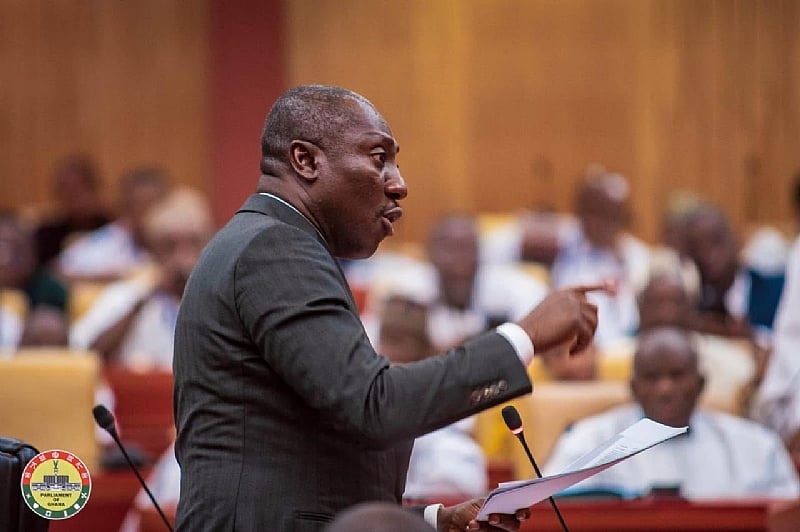The political landscape of Ghana is embroiled in controversy following a directive issued by Chief of Staff Julius Debrah on February 11, 2025, mandating the cancellation of all government appointments made after the December 7, 2024, general elections. This sweeping decision, justified by the government as a measure to uphold good governance norms, has sparked outrage and accusations of hypocrisy, particularly from the opposition New Patriotic Party (NPP). Leading the charge against the directive is Alexander Afenyo-Markin, Minority Leader and Member of Parliament for Effutu, who has publicly called on President John Dramani Mahama to reverse the revocations. He argues that the move contradicts President Mahama’s previous stance against similar actions taken by the NPP government in 2017 and betrays the promises he made to the youth during his 2024 campaign.
Afenyo-Markin’s primary concern revolves around the perceived unfairness and disruption caused by the mass dismissals. He contends that many of the affected individuals underwent legitimate recruitment processes that commenced well before the election period, some even dating back to June of the previous year. The abrupt termination of their appointments, despite having received official appointment letters in September, October, November, and December, has left them in precarious situations, casting doubt on the government’s commitment to job security and its campaign pledges. He emphasizes the human cost of this decision, highlighting the distress and uncertainty inflicted upon those who have now been unexpectedly thrust back into unemployment.
The Effutu MP has taken concrete action by formally addressing the issue in a letter to President Mahama. In his correspondence, he presents detailed information regarding the affected appointments, urging the President to intervene and countermand the Chief of Staff’s directive. Afenyo-Markin’s appeal underscores the potential negative ramifications of the dismissals, not only for the individuals involved but also for the nation’s image. He argues that such actions undermine public trust in the government and create unnecessary hardship, contradicting the principles of inclusivity and stability that are essential for national development. He views these revocations as a betrayal of the trust placed in the government by the electorate, especially the youth who were assured of job security during the campaign period.
Defending the government’s stance, Presidential Spokesperson Felix Kwakye Ofosu has justified the revocations, claiming that many of the appointments in question were made in breach of due process. He alleges that some of the recruits did not even submit application letters, implying a lack of transparency and potentially corrupt practices in the recruitment process. This assertion, however, fuels the ongoing debate and raises questions about the government’s own adherence to due process in its decision to revoke the appointments en masse. The lack of specific details about the alleged irregularities leaves room for speculation and further fuels accusations of political motivation behind the dismissals.
This clash of perspectives highlights a deeper political tension within Ghana’s governance. The opposition views the revocations as a politically motivated purge, designed to create vacancies for political loyalists. The government, on the other hand, maintains that its actions are necessary to rectify irregularities and ensure adherence to established procedures. This disagreement not only jeopardizes the livelihoods of numerous individuals but also raises broader questions about the transparency and fairness of government hiring practices. The absence of a clear and consistent framework for public sector appointments contributes to the vulnerability of employees and leaves room for politically driven decisions.
The unfolding situation necessitates a thorough and impartial investigation to ascertain the veracity of both the government’s and the opposition’s claims. A transparent review process, including the examination of individual cases and the adherence to due process in both appointments and revocations, is crucial to restoring public trust and ensuring fairness. Furthermore, this incident underscores the need for clearer guidelines and regulations governing public sector appointments and dismissals to prevent future controversies and protect the rights of employees. The ultimate resolution of this issue will significantly impact public perception of the government’s commitment to its campaign promises and its dedication to upholding principles of good governance.


